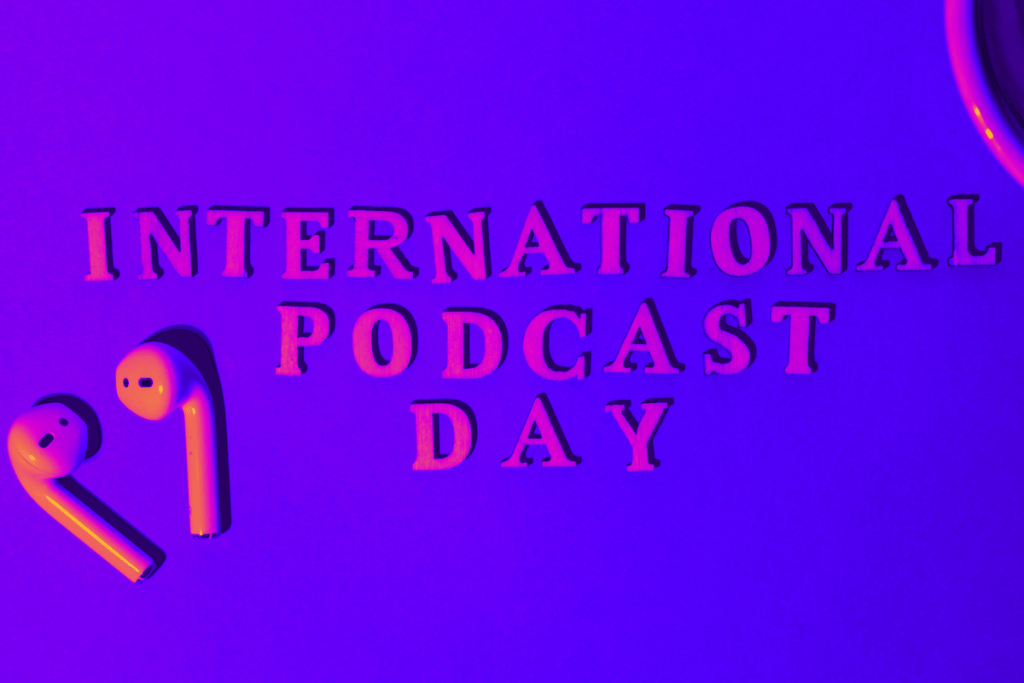Every September 30th, podcasters and listeners around the world celebrate International Podcast Day.
Initially founded as “National Podcast Day” in 2014 and rebranded as “International Podcast Day” in 2015 by Steve Lee, this annual event recognizes podcasting’s unique power to connect voices across continents, cultures, and communities.
But what makes podcasting different from every other content platform? One thing: the RSS feed.
When Ben Richardson acquired the RSS.com domain in 2013, he wasn’t thinking about podcasting at all. He was trying to save RSS feed readers after Google Reader shut down. But over time, something became clear: podcast listeners (and hosts!) kept asking questions about RSS feeds.
That observation led to a partnership with Alberto Betella, who had spent years building Podcast Generator, an open-source podcasting platform.
Together, Ben and Alberto launched RSS.com in January 2018 with a core belief: podcasting should remain open, accessible, and free from any single gatekeeper.
That’s where the RSS feed comes in, as it’s a powerful technology that makes podcasting truly independent.
The RSS feed is the backbone of podcasting.
Here’s why it matters:
Independence – No single gatekeeper can shut you down. Unlike social media platforms or streaming services that control your content and your audience, an RSS feed belongs to you.
When listeners subscribe to your show, they’re subscribing to your feed, not a platform’s algorithm. You maintain control. You own the relationship with your audience.
Portability – One feed reaches every platform. You create an RSS feed once, submit it to directories like Spotify and Apple Podcasts, and your content flows freely to listeners everywhere.
This open architecture means a podcast hosted anywhere can be heard everywhere.
Ownership – You own your audience, not a platform. Your subscriber list, your content, your distribution, all of it stays in your hands.
No company can change the rules on you overnight or hold your audience hostage.
Longevity – Platforms come and go, but RSS remains open.
Remember Google+? Vine? Even Twitter has transformed beyond recognition.
RSS has been around since 1999, and will outlast whatever platform is trendy today because it’s not owned by anyone. It’s an open standard.
By the way, we’d be remiss if we didn’t share this warning: If you only publish on Spotify or YouTube without an RSS feed, you’re trapped in walled gardens.
Your show exists only where they allow it. The day they change their terms, sunset a feature, or decide your content doesn’t fit their model, you could end up starting over from scratch.
RSS Enables Local and Niche Voices
This independence and portability unlock something powerful: the ability to speak directly to specific communities, no matter how small or scattered.
Radio has always been local, but only within the limits of geography and broadcast towers. Podcasting takes that same local voice and makes it borderless. A show recorded in a small town can be just as accessible to someone across the street as to someone across the ocean.
Consider these scenarios:
– A counselor in Arizona creates a podcast about various mental health topics in her area to assist people that might not be able to get into her office to educate themselves
– A diaspora community maintains cultural connections across continents
– Small business owners in the same industry, but different cities, share practical advice
– Parents of children with a rare medical condition find each other and build support networks
This is what RSS makes possible.
You don’t need a million listeners to make an impact. You need the right listeners. The ones who care deeply about what you have to say. The ones who find kinship in your voice.
RSS.com’s founding team understood this from the beginning. Alberto, working from Europe, and Ben, based in Texas, built their company across continents before ever meeting in person.
Their diverse backgrounds (spanning real estate, technology, academia, and startups) informed a core principle: every voice deserves to be heard, and linguistic and cultural diversity strengthens the medium.

Making Podcasting Accessible
The barrier to entry for podcasting should be low. That was Alberto’s vision when he created Podcast Generator in 2005, making it free and open-source.
The same principle guides RSS.com today: powerful tools at an accessible price point that anyone can use.
When podcasting becomes accessible, local stories get told.
Niche communities find their voice.
Someone in a small town can reach listeners worldwide.
A podcast about beekeeping in Vermont might find devoted fans in Australia.
A show discussing regional cuisine might inspire food lovers across the globe.
All of this is possible because RSS keeps the medium open.
Celebrate the Open Web
This International Podcast Day, let’s celebrate more than just the growth of podcasting, and instead celebrate the open RSS feed that makes it possible.
Without it, podcasting would just be another walled garden. With it, podcasting remains one of the last truly open mediums on the internet.
If you’ve ever thought about starting a podcast, now’s the time. Your voice deserves to live freely and be shared with the world on your terms, not an algorithm’s.
Ready to start your podcast? Get started for free today, and join podcasters around the world sharing their voices this International Podcast Day. Use code “FRIENDS” at checkout for three free months of service!